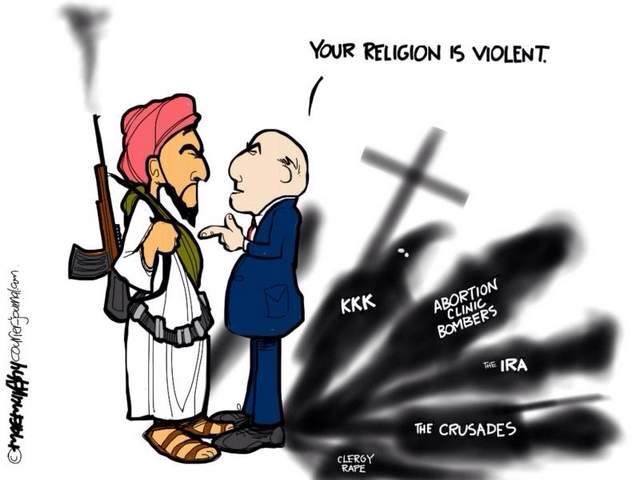Today was quiz day, but I guess you already know that since I've been posting about it for the past several days.
I plan on having the grades entered today by 5, but there's a chance I won't have them entered until tomorrow. You should know that students have the option of having their scores emailed along with an answer key. Several classes are now doing this. If your son or daughter (or grand-daughter, grand-son, foster son, foster daughter, niece, nephew, etc...) doesn't have an email address or you just want to see the scores as well, you could ask them to add your email address.
Students should also be aware that I entered the grades for the Abraham's Journey map that we did together. If you weren't here that day, or didn't turn it in, you can download it HERE. You'll note that there are no instructions on that map. That's because we did it together. Get a finished copy from another student and ask them if you could copy it.
Also, when you borrow their map, ask them what TKWA stands for. Tell them they'll get extra credit if they help you out. (They should have written it on the back of the map, if they can't remember. Write it on the back of yours.)
Tomorrow we're moving on to exploration and colonization.
If you want to get extra credit for reading and discussing the blog, tell the adult you read and discussed it with what "TKWA" stands for. Then, write it down on a scrap piece of paper. Have the adult you read with sign the paper.
Turn it in tomorrow in the extra credit tray.
...Ok, this has nothing to do with social studies, so feel free to ignore it. Some students asked me how I came up with my password for today's quiz. Well, here's your answer:
Tuesday, January 27, 2015
Friday, January 23, 2015
Similarities Between Judaism, Christianity, and Islam Venn Diagram
If you've been keeping up with what we're doing in class, you know that we have a quiz on Tuesday. It will include some multiple choice questions, as well as an essay section.
If you're interested in knowing the essay questions ahead of time, here they are:
1. Compare the 3 major monotheistic religions we have studied. Describe how they are similar, and how they differ. Explain their main beliefs and practices.
2. Who was Abraham? Where was he from and why is he important to each of the three monotheistic religions? What do each of the three monotheistic religions believe about him?
In class today, we took 3 mini-quizzes. Two dealt with the pictures of the Five Pillars of Faith for Islam that the students had drawn yesterday. I gave them a practice quiz first using pictures students had drawn last year. Then they traded their pictures and gave each other a "pictionary quiz."
Then, we looked at some of the different beliefs of the 3 monotheistic religions we've been studying and put them on a Venn Diagram. After I showed we went through the list, and they placed each on their own Venn Diagram, the students went and placed them on the board.
If you want some added practice, you could do it again. Here's the Venn Diagram followed by the list:
1.Bible
2.Trace their roots back to Abraham
3.Name of God = YHWH
4.Monotheistic
5.Does not eat pork
6.Founder is Jesus Christ
7.Founder is Abraham
8.Founder is Mohammed
9.5 Pillars of Faith
10.10 Commandments
11. Believe in a Messiah
12. Believe Jesus is the Messiah
13. Believe the Messiah has not arrived yet.
14. Uses the Old Testament/Torah
15. Uses the Torah only
16. Uses Old Testament AND New Testament
17. Uses the Qu'ran
18. Believes Jesus is God
19. Believes Jesus is a prophet
20. Believes Jesus was just a man
21. Oldest (c. 1700 BC)
22. Middle (c. 33 AD)
23 Newest (c. 600 AD)
24. Jerusalem is a holy city
25. Some branches/denominations wear head-coverings
26. Originated in the Middle East
27. Two greatest commandments are love God and love people
And now for the answers.
...
Don't cheat...
...
If you want extra credit today, you should have read and discussed the blog with an adult. It'd probably be a good idea to think about which essay you're going to write. You could even write a rough draft. (No pressure though, it's the weekend. ...Lets keep work at work...) To prove that you were here, write a paragraph from your discussion, and have the adult you read the blog with sign it somewhere.
If you want to look at some other stuff to study, check it out:
If you're interested in knowing the essay questions ahead of time, here they are:
1. Compare the 3 major monotheistic religions we have studied. Describe how they are similar, and how they differ. Explain their main beliefs and practices.
2. Who was Abraham? Where was he from and why is he important to each of the three monotheistic religions? What do each of the three monotheistic religions believe about him?
In class today, we took 3 mini-quizzes. Two dealt with the pictures of the Five Pillars of Faith for Islam that the students had drawn yesterday. I gave them a practice quiz first using pictures students had drawn last year. Then they traded their pictures and gave each other a "pictionary quiz."
Then, we looked at some of the different beliefs of the 3 monotheistic religions we've been studying and put them on a Venn Diagram. After I showed we went through the list, and they placed each on their own Venn Diagram, the students went and placed them on the board.
If you want some added practice, you could do it again. Here's the Venn Diagram followed by the list:
1.Bible
2.Trace their roots back to Abraham
3.Name of God = YHWH
4.Monotheistic
5.Does not eat pork
6.Founder is Jesus Christ
7.Founder is Abraham
8.Founder is Mohammed
9.5 Pillars of Faith
10.10 Commandments
11. Believe in a Messiah
12. Believe Jesus is the Messiah
13. Believe the Messiah has not arrived yet.
14. Uses the Old Testament/Torah
15. Uses the Torah only
16. Uses Old Testament AND New Testament
17. Uses the Qu'ran
18. Believes Jesus is God
19. Believes Jesus is a prophet
20. Believes Jesus was just a man
21. Oldest (c. 1700 BC)
22. Middle (c. 33 AD)
23 Newest (c. 600 AD)
24. Jerusalem is a holy city
25. Some branches/denominations wear head-coverings
26. Originated in the Middle East
27. Two greatest commandments are love God and love people
And now for the answers.
...
Don't cheat...
...
If you want extra credit today, you should have read and discussed the blog with an adult. It'd probably be a good idea to think about which essay you're going to write. You could even write a rough draft. (No pressure though, it's the weekend. ...Lets keep work at work...) To prove that you were here, write a paragraph from your discussion, and have the adult you read the blog with sign it somewhere.
If you want to look at some other stuff to study, check it out:
...You could always quiz yourself. Though, make sure you'relaxing a little bit too. It is the weekend, after all.
Labels:
3 monos,
Christianity,
Islam,
Judaism,
mono,
monotheism,
monotheistic,
religions
Thursday, January 22, 2015
Reposting From Last Year
If you want the extra credit today, go to THIS POST from last year.
The only difference is, instead of looking at the pictures today, we're looking at them tomorrow. If you didn't finish them, make sure you complete them for homework.
The only difference is, instead of looking at the pictures today, we're looking at them tomorrow. If you didn't finish them, make sure you complete them for homework.
Wednesday, January 21, 2015
Extremism
We're having a quiz on the 3 monotheistic religions next Tuesday. There is a chance a portion of it will be an essay question. I'll let students know by Friday if I'm going through with that or not.
Today we finally graded those Venn diagrams. They should be in the grade book tonight.
We also discussed religious extremism.
As always, students came into class and started working on bellwork.
Today they picked up this cartoon on the way in:
They were asked to identify the different aspects of the picture, and then explain the point the cartoonist was trying to make.
Some students incorrectly answered that the cartoonist was saying all religions are violent. The point the cartoonist is making is that there are extremist elements in all religions, and the religion shouldn't be defined by the extremist elements.
We've already dedicated a lot of time to Islamic extremism (between the 9/11 attacks and the attacks on Charlie Hebdo.) So today we spent a little time on extremists in Christianity and Judaism.
The picture is a little jarring if you're unfamiliar with it. But when we teach that the Klan identifies as Christian, we're not lying.
For Judaism, we looked at the assassination of Prime Minister Yitzhak Rabin. Students filled out a simple flow chart explaining who he was, and what happened. (He was assassinated by a radical Orthodox Jew who felt Rabin was giving too much to the Muslims. ...Essentially, he wasn't "Jewish" enough.)
If you're here because you want extra credit, you were supposed to read and discuss the blog with an adult. If you've done that, write a paragraph telling me how the discussion went. When you're done, have the adult you've discussed with sign the paper. Turn it in tomorrow for extra credit.
Friday, January 16, 2015
Dr. King, Dr. King: I Know You're Listening.
I don't have time for a long post right now, so I hope you'll accept this.
We're studying the 3 monotheistic religions - specifically, the importance of Abraham.
Dr. Martin Luther King, Jr. was a Christian pastor. As such, he was heavily influenced by Abraham.
We have Monday off in his honor, so I thought it would be fitting to post a clip from the last speech he gave. He mentions the Promised Land. ...The land God promised Abraham.
Of course, King is using it metaphorically: there are better times ahead. We will get there. It will be difficult, and I might not be there with you, but we will get there. We will claim the promises that are rightfully ours.
Incidentally, this brief clip also mentions unlimited governments and the Constitution: two other things that we bring up (or have brought up) in class.
If you're here because you want the extra credit, take 3 minutes and watch that clip with an adult. Discuss it. Then, on a scrap of paper, write down what you thought about it. Have the adult sign the paper. Turn it in on Tuesday.
Have a great weekend. (I know I will... My daughter's birthday is today, and mine is tomorrow.)
We're studying the 3 monotheistic religions - specifically, the importance of Abraham.
Dr. Martin Luther King, Jr. was a Christian pastor. As such, he was heavily influenced by Abraham.
We have Monday off in his honor, so I thought it would be fitting to post a clip from the last speech he gave. He mentions the Promised Land. ...The land God promised Abraham.
Of course, King is using it metaphorically: there are better times ahead. We will get there. It will be difficult, and I might not be there with you, but we will get there. We will claim the promises that are rightfully ours.
If you're here because you want the extra credit, take 3 minutes and watch that clip with an adult. Discuss it. Then, on a scrap of paper, write down what you thought about it. Have the adult sign the paper. Turn it in on Tuesday.
Have a great weekend. (I know I will... My daughter's birthday is today, and mine is tomorrow.)
Thursday, January 15, 2015
Monotheism: Abraham's Journey; Judaism, Christianity, and Islam
Yesterday we started class by reading a passage from Genesis - from the Christian and Jewish Holy books. According to Jews and Christians, God and Abraham made a covenant, or agreement/promise.
You can read what we read HERE. They answered a few questions from the reading.
After they were done, we had a little refresher on the ancient civilizations of Mesopotamia and Egypt. Abraham left Mesopotamia, and by the end of the passage we read yesterday, ended up in Egypt.
We reviewed the polytheism of these ancient civilizations, and then I read a section from the Qur'an. In book 6, God shows the errors of polytheism. Abraham tries to explain this to the people of Mesopotamia, but they will not listen. (In fact, later in the Qur'an Abraham's father threatens to stone him if he doesn't accept the Mesopotamian gods.)
You can read the section of the Qur'an HERE. (We actually read 72-81.)
The point of yesterday's lesson was that all three major monotheistic religions trace their roots back to Abraham. An interesting thing to consider: the lives of more than 3 billion people today are directly influenced by that man. (2 billion Christians, and 1 billion Muslims.) That doesn't even take into account the number of non-religious people whose lives are influenced by him because of the countries in which they live. Governments are set up that use the Qur'an or Bible or Torah to help inform how their countries are run.
Side note: In a couple classes, we discussed social media: many of my students have Facebook or Instagram. We all agreed that it's fun when people "like" the stuff we post. I happen to love being able to experience winter. Driving in to work yesterday, the trees looked AMAZING, so I snapped a picture.
Social media connects us to other people. It allows us to influence others. It's crazy to think about how much influence Abraham has had on the world. How many people would follow him on Facebook or Twitter...
We finished out yesterday by beginning a map of Abraham's journey. Instead of giving it as an assignment, we're completing it as a class.
We haven't finished it yet. I plan on wrapping it up tomorrow. I'll post a picture when it's finished.
Today we've moved on from Judaism and Christianity to Islam. We watched the Islam video - the last video we'll watch for quite some time.
If you want extra credit today, you need to write two names on a piece of scrap paper, then have the adult you read it with sign the paper. All three major monotheistic religions trace their roots back to one man, who is it? Who is the founder of Islam? Those are the names you need. ...Well... you should also make sure your name is on it...
...Man... I didn't even get to tell how I time-traveled with a couple classes... Was it your class?
You can read what we read HERE. They answered a few questions from the reading.
After they were done, we had a little refresher on the ancient civilizations of Mesopotamia and Egypt. Abraham left Mesopotamia, and by the end of the passage we read yesterday, ended up in Egypt.
We reviewed the polytheism of these ancient civilizations, and then I read a section from the Qur'an. In book 6, God shows the errors of polytheism. Abraham tries to explain this to the people of Mesopotamia, but they will not listen. (In fact, later in the Qur'an Abraham's father threatens to stone him if he doesn't accept the Mesopotamian gods.)
You can read the section of the Qur'an HERE. (We actually read 72-81.)
The point of yesterday's lesson was that all three major monotheistic religions trace their roots back to Abraham. An interesting thing to consider: the lives of more than 3 billion people today are directly influenced by that man. (2 billion Christians, and 1 billion Muslims.) That doesn't even take into account the number of non-religious people whose lives are influenced by him because of the countries in which they live. Governments are set up that use the Qur'an or Bible or Torah to help inform how their countries are run.
Side note: In a couple classes, we discussed social media: many of my students have Facebook or Instagram. We all agreed that it's fun when people "like" the stuff we post. I happen to love being able to experience winter. Driving in to work yesterday, the trees looked AMAZING, so I snapped a picture.
Social media connects us to other people. It allows us to influence others. It's crazy to think about how much influence Abraham has had on the world. How many people would follow him on Facebook or Twitter...
We finished out yesterday by beginning a map of Abraham's journey. Instead of giving it as an assignment, we're completing it as a class.
We haven't finished it yet. I plan on wrapping it up tomorrow. I'll post a picture when it's finished.
Today we've moved on from Judaism and Christianity to Islam. We watched the Islam video - the last video we'll watch for quite some time.
If you want extra credit today, you need to write two names on a piece of scrap paper, then have the adult you read it with sign the paper. All three major monotheistic religions trace their roots back to one man, who is it? Who is the founder of Islam? Those are the names you need. ...Well... you should also make sure your name is on it...
...Man... I didn't even get to tell how I time-traveled with a couple classes... Was it your class?
Labels:
Abraham,
Christianity,
Genesis,
Islam,
Judaism,
Koran,
monotheism,
Quran
Tuesday, January 13, 2015
Comparing Judaism and Christianity/ Timeline Practice
We started out class with some timeline practice today. If you're checking the blog because you were absent and want the extra credit, that's what you have to do. You can GET A COPY HERE, or I may have an extra at school. No promises though... if I'm out and you don't have a copy, print it out at the Media Center.
Here's a key to remember when you're working with timelines: if you have to jump over "0" you add. If you stay on the same side of the timeline, subtract. (And yes, we know there's no year ).
We've been studying some of the similarities between Judaism and Christianity... The major ones.
Obviously, there are a lot - since Jesus Christ was Jewish and followed the Jewish customs, and law.
I'll try to post the big stuff tomorrow after students turn in their Venn diagrams. (That reminds me, if students didn't finish their Venn diagrams - or if they were absent - they've got homework. ...Most people should be done.)
If you just showed up for the extra credit, here's what you have to do. Read and discuss the blog with an adult. Tell the adult 3 similarities between Judaism and Christianity. Write down one. Have the adult you read and discussed with sign the paper.
Turn it in tomorrow.
Until then, have a great day.
Here's a key to remember when you're working with timelines: if you have to jump over "0" you add. If you stay on the same side of the timeline, subtract. (And yes, we know there's no year ).
We've been studying some of the similarities between Judaism and Christianity... The major ones.
Obviously, there are a lot - since Jesus Christ was Jewish and followed the Jewish customs, and law.
I'll try to post the big stuff tomorrow after students turn in their Venn diagrams. (That reminds me, if students didn't finish their Venn diagrams - or if they were absent - they've got homework. ...Most people should be done.)
If you just showed up for the extra credit, here's what you have to do. Read and discuss the blog with an adult. Tell the adult 3 similarities between Judaism and Christianity. Write down one. Have the adult you read and discussed with sign the paper.
Turn it in tomorrow.
Until then, have a great day.
Labels:
Bible,
Christianity,
Judaism,
mono,
monotheism,
TNK,
Torah
Wednesday, January 7, 2015
No Blog Post
There's no E.C. blog post tonight. You'll have to do extra credit some other way. Maybe play the games or watch the news?
I'll allow you to search my blog (there's a search engine built in) and write about a post from a previous year if it covers a topic we're currently covering. (Anything dealing with any of the 3 monotheistic religions we study.)
Write a paragraph about it.
Tuesday, January 6, 2015
Christianity: Key Beliefs
Before we jump into today's post, it's worth mentioning that the end of the grading period is Friday. If you haven't checked your grades in a while, now would be the time to do it. If you're missing anything, in any class, I would get it done.
Yesterday we looked at the diversity within Christianity. Today we're looking at some key beliefs that (almost) all Christians share.
- Monotheistic: there is a God. There is only one God.
- God loves the world.
- People sin - which took away access from God.
- God sent his son, Jesus Christ.
- Jesus Christ took the punishment for human sin.
- People can now have access to God again.
No matter what religion I'm teaching, I always try to offer the students a chance to correct me if I have misrepresented the beliefs of that religion. I try to do that on here as well. If you (students or adults) think that any of the bullet points above aren't shared by the majority of Christians, let me know.
One aspect of Christianity that generally arises is of the deity of Christ: do Christians believe Jesus Christ is God? I tell my students that the majority of students believe Christ is God, but that there are some branches of Christianity which differentiate between Christ being God's son, and Christ being God.
We don't watch too many videos, but we watched one in here today. It wasn't riveting, but it covered the basic concepts, beliefs and practices of Christianity.
If you want the extra credit for reading and discussing the blog, look at the list above. Would you change anything? If so, what? Would you add anything? Write me a note and tell me. Have the adult you read it with sign the note. Turn it in tomorrow.
As always, thanks for reading.
Monday, January 5, 2015
Diversity Within Christianity
We've moved from discussing economics into discussing religions.
Before break, I introduced the concepts of monotheism, polytheism, atheism, etc... We started learning about Judaism.
Today, we've moved into Christianity, and we're looking at the diversity within the Christian faith.
I've created a Kahoot to try to show this to the students. If you're interested in seeing it, CLICK HERE.
You'll have to be at a computer, and have a smart phone, or tablet ready as well. (The students used laptops in the classroom.)
If you want extra credit today, write down 3 of the main beliefs of Christianity. (If you were absent, you may google them.)
Have the adult you discussed this with sign your paper. Turn it in tomorrow in the extra credit tray.
Don't forget that Friday is the last day of the grading period.
Before break, I introduced the concepts of monotheism, polytheism, atheism, etc... We started learning about Judaism.
Today, we've moved into Christianity, and we're looking at the diversity within the Christian faith.
I've created a Kahoot to try to show this to the students. If you're interested in seeing it, CLICK HERE.
You'll have to be at a computer, and have a smart phone, or tablet ready as well. (The students used laptops in the classroom.)
If you want extra credit today, write down 3 of the main beliefs of Christianity. (If you were absent, you may google them.)
Have the adult you discussed this with sign your paper. Turn it in tomorrow in the extra credit tray.
Don't forget that Friday is the last day of the grading period.
Thursday, January 1, 2015
The Best Books of 2014 (and 2013)
HAPPY NEW YEAR! (and a shout-out/thank-you to Better World Books in Goshen, and the Goshen Public Library. If it weren't for you, I wouldn't have books.)
Last year, I made two New Year's Resolutions:
1. I will write at least one real letter a week.
2. I will read books from 2014 as they come out.
As far as resolutions go, I did pretty well. The letter writing kept up until at least March, and I was reading "new" books through December 29th.
Of course, I allowed myself to read other books as well. On January 1st, 2014 there were few books published in 2014, so I allowed myself to count books from 2013.
Are these the "best" books of the year? (I hear someone doing a Kip impression right now... "Napoleon, like anyone can even know that...") Well, a survey of one trillion of the worlds finest literary critics has come back, and they all answered definitively that yes, they are.
It is admittedly a flawed list. Putting collections of short stories against nonfiction and YA? What's wrong with you?
Not only that, but what qualifies as "the best?" How well it's written? How memorable it is? How much you enjoyed it? How easy it was to read? How difficult? The publishers went with Garamond instead of Janson? Well, that move definitely merits removing the book from the list. (Just kidding Garamond, you know I love you.)
The success of last year's resolution:
Of the 72 books I read last year, (you can see them ALL HERE), 26 were from 2013 and 2014.
There are 2 lists, neither one is ordered:
1 - The Best Books Published in 2013/14
2 - The Best Books Read in 2014
The Best Books Published in 2013/14 (I'm linking to my reviews):
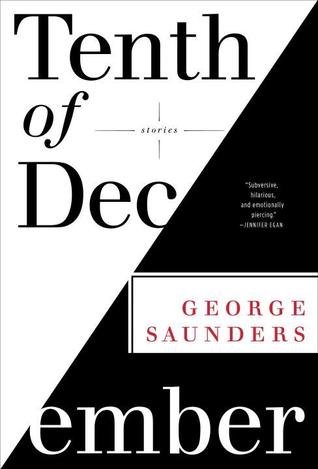

All the Light We Cannot See - by Anthony Doerr
(Fiction set during WWII. Blind girl in France; orphan boy in German; brilliant book.)
Tenth of December - by George Saunders
(Small collection of short stories. PTSD; money-management; idiots; every one is a hit.)

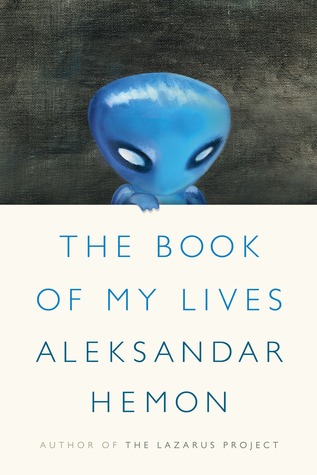
The Martian - by Andy Weir
(Earth's mission to mars doesn't go as originally planned.)
The Book of My Lives - by Aleksandar Hemon
(Collection of essays. War; immigration; confusion; Balkans.)
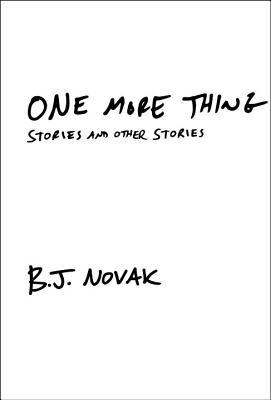
One More Thing: Stories and Other Stories - by B.J. Novak
(Short stories: Dark matter; sex robots; math anxiety. This book is edgy, but hilarious.)
(Don't even point out that the Hemon book came out in 2012. I'm not buying it. I actually think it came out in 2014, and that goodreads is wrong...)
Honorable Mention:

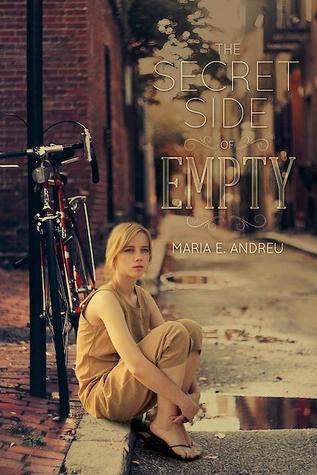 Prepared for a Purpose: The Inspiring True Story of How One Woman Saved an Atlanta School Under Siege - by Antoinette Tuff
Prepared for a Purpose: The Inspiring True Story of How One Woman Saved an Atlanta School Under Siege - by Antoinette Tuff
(The news focuses on the shootings that happen. I wish they would give as much time to the ones that were prevented. An amazing story about grace and staying calm.)
The Secret Side of Empty - by Maria E. Andreu
(Young Adult. My favorite YA book this year. Immigration; secrets dealing with immigration.)
The Best Books Read in 2014


Flowers for Algernon - by Daniel Keyes
(Fiction. A mentally-handicapped man is given treatments and becomes intelligence.)
All Quiet on the Western Front - by Erich Maria Remarque
(WWI fiction. Follows German soldiers.)

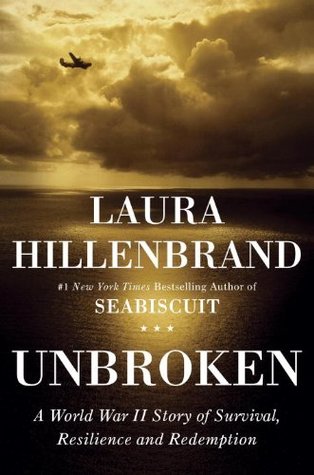
The Idiot - by Fyodor Dostoyevsky
(A poor prince's simplicity allows him to see things more clearly than those around him.)
Unbroken - by Lauren Hillenbrand
(Life of WWII flyboy and Olympic athlete.)

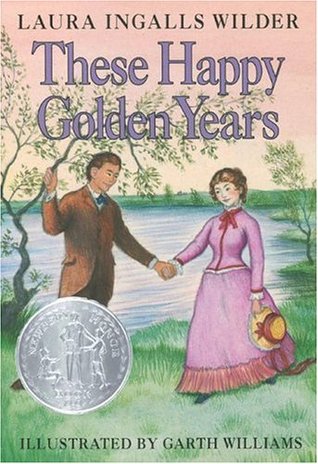 The Glass Castle - by Jeannette Walls
The Glass Castle - by Jeannette Walls
(Memoir. A girl is raised by a quixotic father and conflicted mother.)
All Little House - Laura Ingalls Wilder
(Come on... You've never heard of Little House?...)
(It should be noted that I didn't read the entire series this year. Eleanor and I have been working our way through it, and finally finished it up. I had never read them before, and it was a joy to read them with her. She helped me with all the reviews, too.)
Honorable Mention:
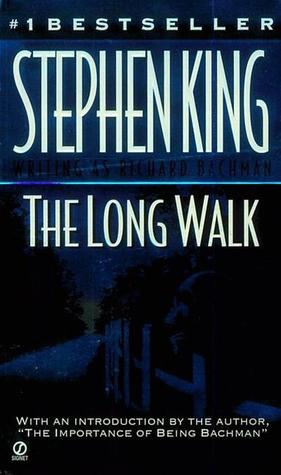
 Bloodlands: Europe Between Hitler and Stalin - by Timothy Snyder
Bloodlands: Europe Between Hitler and Stalin - by Timothy Snyder
(Non-fiction. Argument is the real story of WWII takes place there.)
The Long Walk - by Stephen King
(Last one walking wins the race.)
In Cold Blood - by Truman Capote
(A classic, disturbing true-crime murder story.)
 ...What if I mixed the lists together? Where would they be? I don't know. This was already taxing enough, and I feel guilty for leaving off so many good and memorable books - like The Ocean at the End of the Lane, or On Such a Full Sea, What If, An Invention of Wings... I mean, I almost put The Best American Infographics of 2014 on the list. It was SO good. Really.
...What if I mixed the lists together? Where would they be? I don't know. This was already taxing enough, and I feel guilty for leaving off so many good and memorable books - like The Ocean at the End of the Lane, or On Such a Full Sea, What If, An Invention of Wings... I mean, I almost put The Best American Infographics of 2014 on the list. It was SO good. Really.
I don't know if this post will help you decide what to read next. I certainly hope it does. And I'm always up for recommendations. Just leave them in the comments. Or on Facebook. Or when you see me in person.
Last year, I made two New Year's Resolutions:
1. I will write at least one real letter a week.
2. I will read books from 2014 as they come out.
As far as resolutions go, I did pretty well. The letter writing kept up until at least March, and I was reading "new" books through December 29th.
Of course, I allowed myself to read other books as well. On January 1st, 2014 there were few books published in 2014, so I allowed myself to count books from 2013.
Are these the "best" books of the year? (I hear someone doing a Kip impression right now... "Napoleon, like anyone can even know that...") Well, a survey of one trillion of the worlds finest literary critics has come back, and they all answered definitively that yes, they are.
No, really...
It is admittedly a flawed list. Putting collections of short stories against nonfiction and YA? What's wrong with you?
Not only that, but what qualifies as "the best?" How well it's written? How memorable it is? How much you enjoyed it? How easy it was to read? How difficult? The publishers went with Garamond instead of Janson? Well, that move definitely merits removing the book from the list. (Just kidding Garamond, you know I love you.)
The success of last year's resolution:
Of the 72 books I read last year, (you can see them ALL HERE), 26 were from 2013 and 2014.
There are 2 lists, neither one is ordered:
1 - The Best Books Published in 2013/14
2 - The Best Books Read in 2014
The Best Books Published in 2013/14 (I'm linking to my reviews):


All the Light We Cannot See - by Anthony Doerr
(Fiction set during WWII. Blind girl in France; orphan boy in German; brilliant book.)
Tenth of December - by George Saunders
(Small collection of short stories. PTSD; money-management; idiots; every one is a hit.)


The Martian - by Andy Weir
(Earth's mission to mars doesn't go as originally planned.)
The Book of My Lives - by Aleksandar Hemon
(Collection of essays. War; immigration; confusion; Balkans.)

One More Thing: Stories and Other Stories - by B.J. Novak
(Short stories: Dark matter; sex robots; math anxiety. This book is edgy, but hilarious.)
(Don't even point out that the Hemon book came out in 2012. I'm not buying it. I actually think it came out in 2014, and that goodreads is wrong...)
Honorable Mention:

 Prepared for a Purpose: The Inspiring True Story of How One Woman Saved an Atlanta School Under Siege - by Antoinette Tuff
Prepared for a Purpose: The Inspiring True Story of How One Woman Saved an Atlanta School Under Siege - by Antoinette Tuff(The news focuses on the shootings that happen. I wish they would give as much time to the ones that were prevented. An amazing story about grace and staying calm.)
The Secret Side of Empty - by Maria E. Andreu
(Young Adult. My favorite YA book this year. Immigration; secrets dealing with immigration.)
The Best Books Read in 2014


Flowers for Algernon - by Daniel Keyes
(Fiction. A mentally-handicapped man is given treatments and becomes intelligence.)
All Quiet on the Western Front - by Erich Maria Remarque
(WWI fiction. Follows German soldiers.)


The Idiot - by Fyodor Dostoyevsky
(A poor prince's simplicity allows him to see things more clearly than those around him.)
Unbroken - by Lauren Hillenbrand
(Life of WWII flyboy and Olympic athlete.)

 The Glass Castle - by Jeannette Walls
The Glass Castle - by Jeannette Walls(Memoir. A girl is raised by a quixotic father and conflicted mother.)
All Little House - Laura Ingalls Wilder
(Come on... You've never heard of Little House?...)
(It should be noted that I didn't read the entire series this year. Eleanor and I have been working our way through it, and finally finished it up. I had never read them before, and it was a joy to read them with her. She helped me with all the reviews, too.)
Honorable Mention:

 Bloodlands: Europe Between Hitler and Stalin - by Timothy Snyder
Bloodlands: Europe Between Hitler and Stalin - by Timothy Snyder(Non-fiction. Argument is the real story of WWII takes place there.)
The Long Walk - by Stephen King
(Last one walking wins the race.)
In Cold Blood - by Truman Capote
(A classic, disturbing true-crime murder story.)
 ...What if I mixed the lists together? Where would they be? I don't know. This was already taxing enough, and I feel guilty for leaving off so many good and memorable books - like The Ocean at the End of the Lane, or On Such a Full Sea, What If, An Invention of Wings... I mean, I almost put The Best American Infographics of 2014 on the list. It was SO good. Really.
...What if I mixed the lists together? Where would they be? I don't know. This was already taxing enough, and I feel guilty for leaving off so many good and memorable books - like The Ocean at the End of the Lane, or On Such a Full Sea, What If, An Invention of Wings... I mean, I almost put The Best American Infographics of 2014 on the list. It was SO good. Really.I don't know if this post will help you decide what to read next. I certainly hope it does. And I'm always up for recommendations. Just leave them in the comments. Or on Facebook. Or when you see me in person.
Subscribe to:
Comments (Atom)




